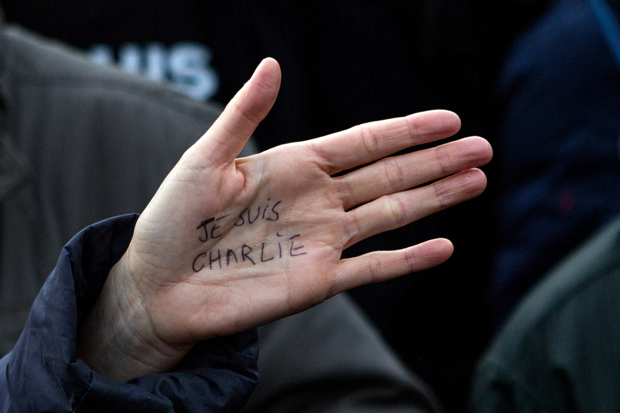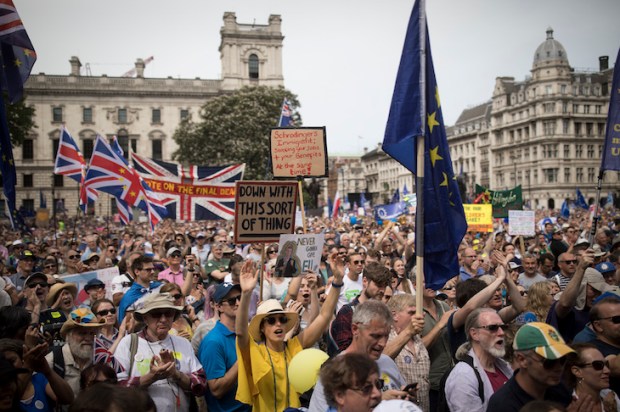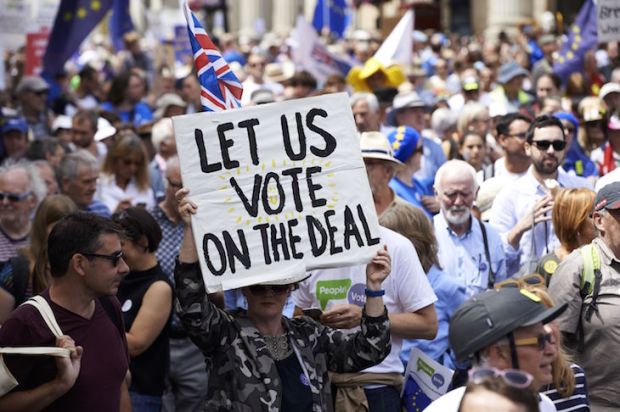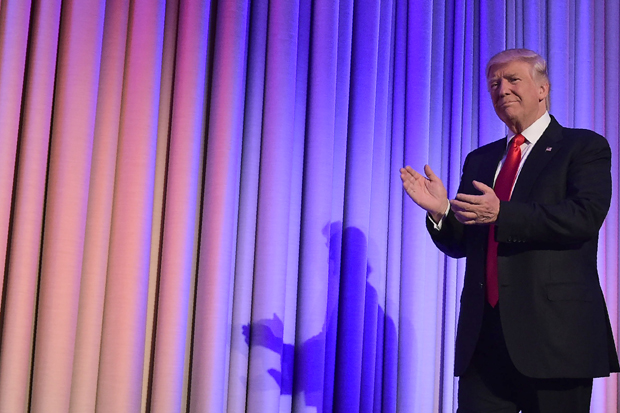Something dangerous is brewing beneath the surface in our country, and it worries me that warning lights are not flashing in the minds of many of those I respect most. After the discrediting of anti-Semitism, after the discrediting of discrimination against black people, after the discrediting of prejudice towards the Irish, I hadn’t expected to live to see a powerful generalised antipathy against any race or religion gather popular force here without stirring at least the more liberal of my fellow citizens into resistance. I expected a sense of alarm. There is none.
Last Saturday my Times colleague Janice Turner used her weekly column to sound a note of anxiety about what she called a new shrillness in attitudes towards British Muslims, and a ‘lumping together’ of all Muslims as though all were extremists. Indeed, she said, we are starting to do the extremists’ work for them. She concluded: ‘In our poisonous, polarising age, it is time to stop seeking difference and ask how we are the same.’
Now Janice is hardly a bleeding-heart multi-culturalist. She’s been a consistent secularist and has spoken up sharply and repeatedly against sharia, against Islamic attitudes to women, and against the wearing of the full veil in court. So have I. I join her in self-identifying as no fan of important parts of Islamic teaching. Speaking for myself, I’d say (and have) that as world religions go, Islam is not one I much like.
But the response to Janice’s column shocked me. Among some 500 online posts (a lot, for the subscription-only Times) I’d say that at least 90 per cent were hostile to her argument, and many of them biliously so. I got the same response last summer after writing in the same vein: if you read your online responses (and I do) you can emerge from this feeling you’ve been spending time somewhere pretty unpleasant.
What’s so notable is not that lots of people may disagree with a column — I’m used to that and often expect it — but the hateful way the views are expressed: hateful towards Muslims, all Muslims, and hateful towards those of us who don’t share the antipathy. We are immediately damned as sympathising with extremists, despising our country, ‘living in a bubble’, not understanding how ‘most people’ feel, and being ignorant of what’s happening. As a matter of fact I live during the working week in London borough of Tower Hamlets, one of the most Islamic localities in Britain. I shop in the (overwhelmingly Bengali) Whitechapel Road and Stepney markets, I travel almost exclusively by bus, tube and train, and I see the same country my critics do. It follows that I know that Muslims, like Christians, come in all shapes and sizes and with a very wide range of opinions of matters religious and secular, and that millions of British Muslims are worried about extremism, some of them worried sick.
I’m afraid there’s a disinclination to hear this. ‘Moderate’ Muslims are attacked as ‘failing to speak up’ — and to my dismay I read my friend and fellow campaigner for free speech, David Aaronovitch, writing that ‘Muslims have a problem: they don’t believe in free speech.’ Actually very few people believe in free speech, but I do — yet I admit I had and have my doubts about some of the ‘Je suis Charlie Hebdo’ stuff. There are passengers joining this bandwagon whose love of free expression strikes me as having rather a lot to do with dislike of Muslims, and whom I struggle to imagine (for instance) joining a march in defence of the rights of Muslims to publish cartoons of Jesus as a terrorist or Mary as a whore.
Of course I defend people’s right to mock religion. Of course I was appalled at the Paris murders. I’ve myself written that mockery — even insult — is an important weapon against oppressive piety. But I could not agree with another good friend, Daniel Finkelstein, in arguing last month that not only must we defend people’s right to publish mocking images of the Prophet Mohammed, we must assert their wisdom in doing so. I don’t believe that in the present atmosphere it’s wise to publish images calculated to wound and offend not only fundamentalist Muslims, but middle-of-the-road Muslims too. There are questions of timing and judgment here. When sensitivities are inflamed it is possible to go too far.
These, I believe, are such times. A few weeks ago, someone sent me (and, I suppose, other journalists) at my newspaper’s office at Westminster a noxious little booklet called ‘Islam Surveyed’. It had over a hundred pages culled from media websites across the spectrum (Guardian, Daily Mail, Telegraph, Huffington Post): a selection exclusively of hostile comments posted underneath articles that had mentioned Islam or Muslims. The anonymous authors of ‘Islam Surveyed’ implicitly claimed that these universally highly ‘recommended’ or ‘liked’ anti-Muslim/Islam comments showed that the vast majority of the British public shared their own antipathies. Readers were to conclude that mass public opinion was overwhelmingly hostile — and (I suppose) to infer that the hostility must therefore be right.
That use of the word ‘surveyed’ was nasty — as though through some systematic and scientific method something about Muslims themselves and their religion had been established. Imagine receiving a booklet ‘Judaism Surveyed’ which was just an uncritical collection of examples of popular anti-Semitism. My response would be ‘However many people are anti-Semitic, I’m not.’ The online poison-spreaders’ argument — that hostility to Muslims is very widespread so we’d better get wise — should meet the same response. I’m unable to shake off the suspicion that beneath the furious assertions that almost everybody agrees with a point of view, lies the implication that my sort had better wise up. ‘You just don’t get it, do you?’ they say.
Well I do get it. But I don’t agree with it. The passionate intensity that Yeats said the worst were full of now seems to grip the centre. Anti-zealots are becoming zealous in their anti-zealotry, and I’m unsettled by the mood.
Got something to add? Join the discussion and comment below.
Get 10 issues for just $10
Subscribe to The Spectator Australia today for the next 10 magazine issues, plus full online access, for just $10.
You might disagree with half of it, but you’ll enjoy reading all of it. Try your first month for free, then just $2 a week for the remainder of your first year.















Comments
Don't miss out
Join the conversation with other Spectator Australia readers. Subscribe to leave a comment.
SUBSCRIBEAlready a subscriber? Log in